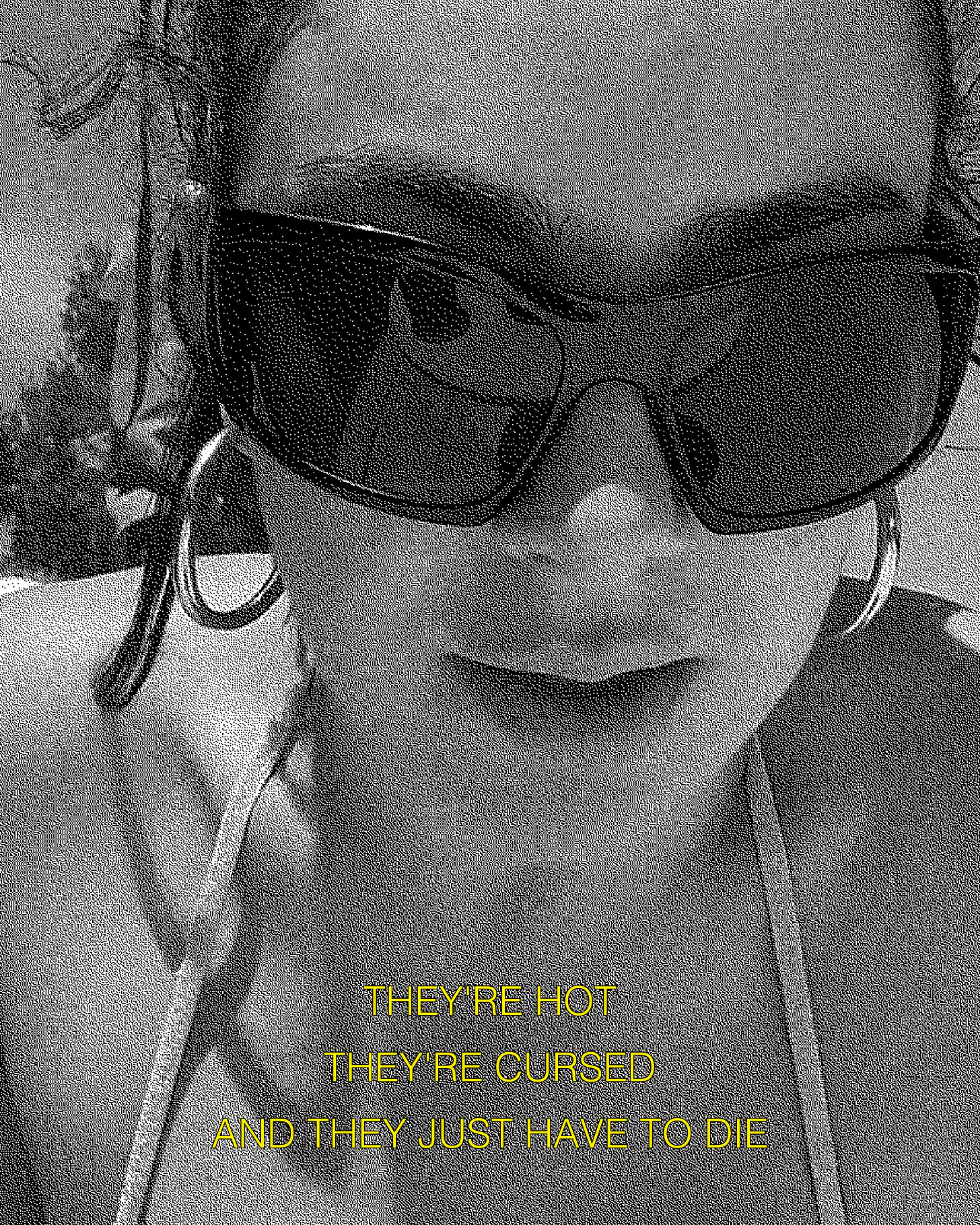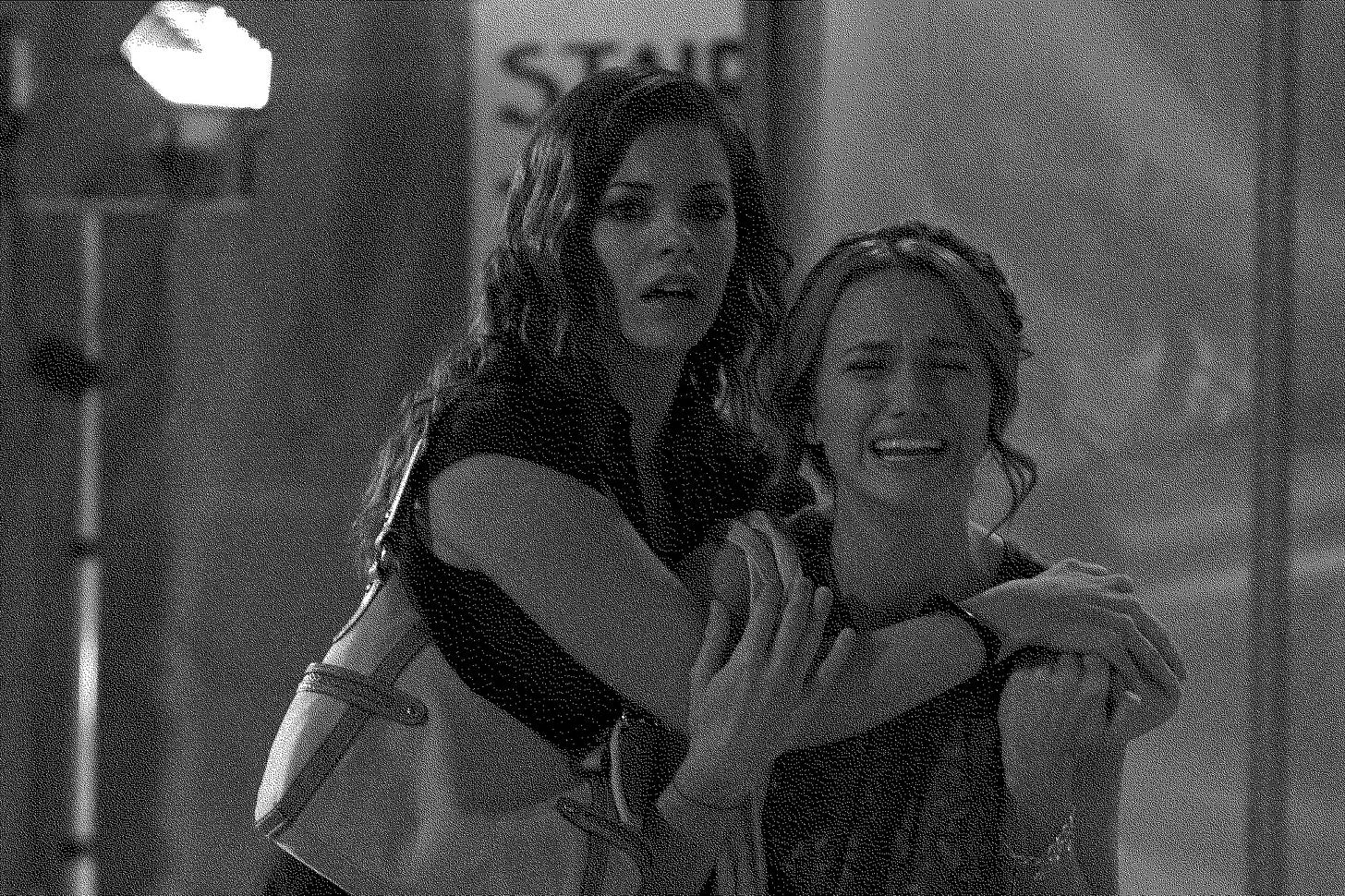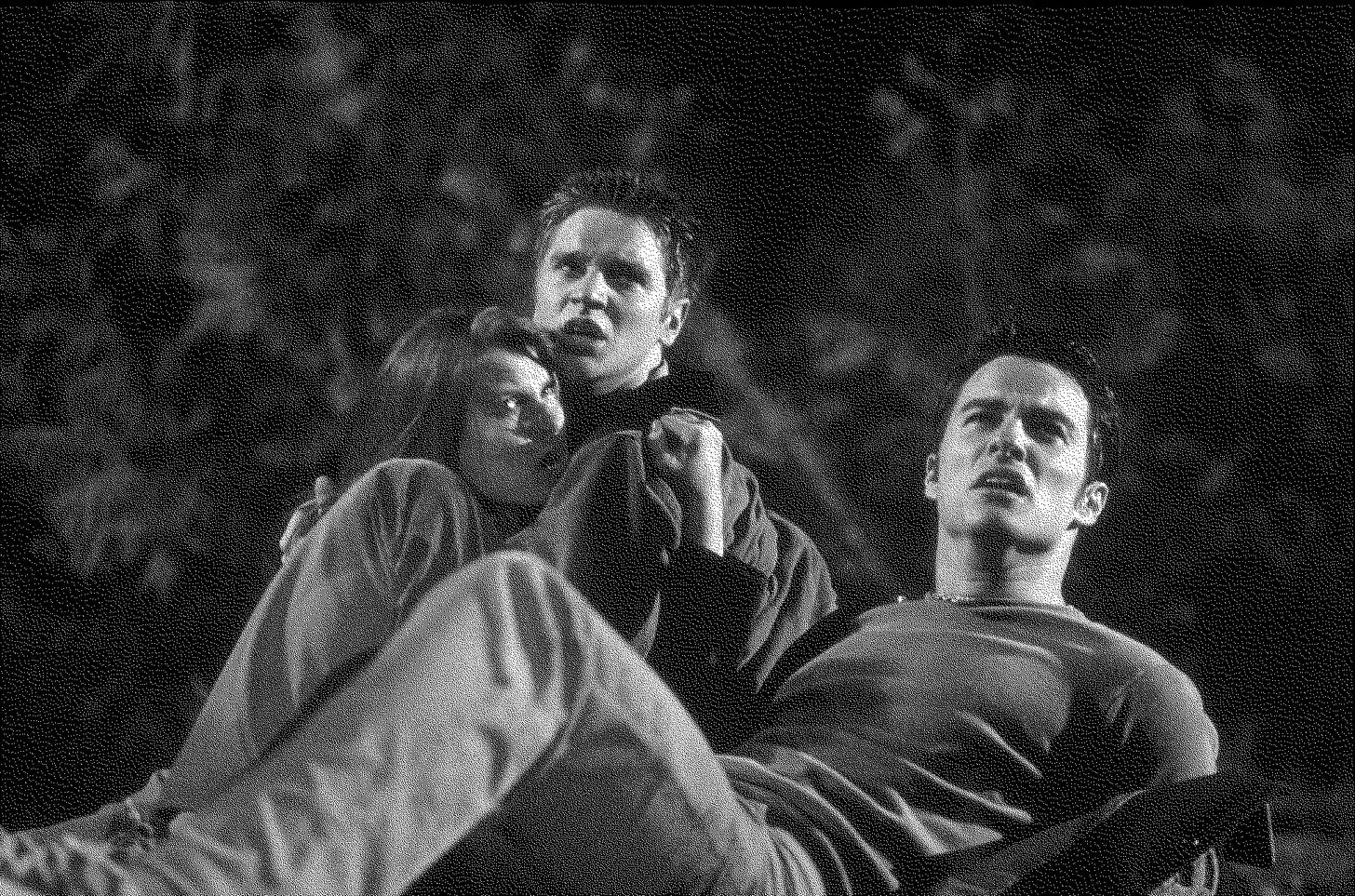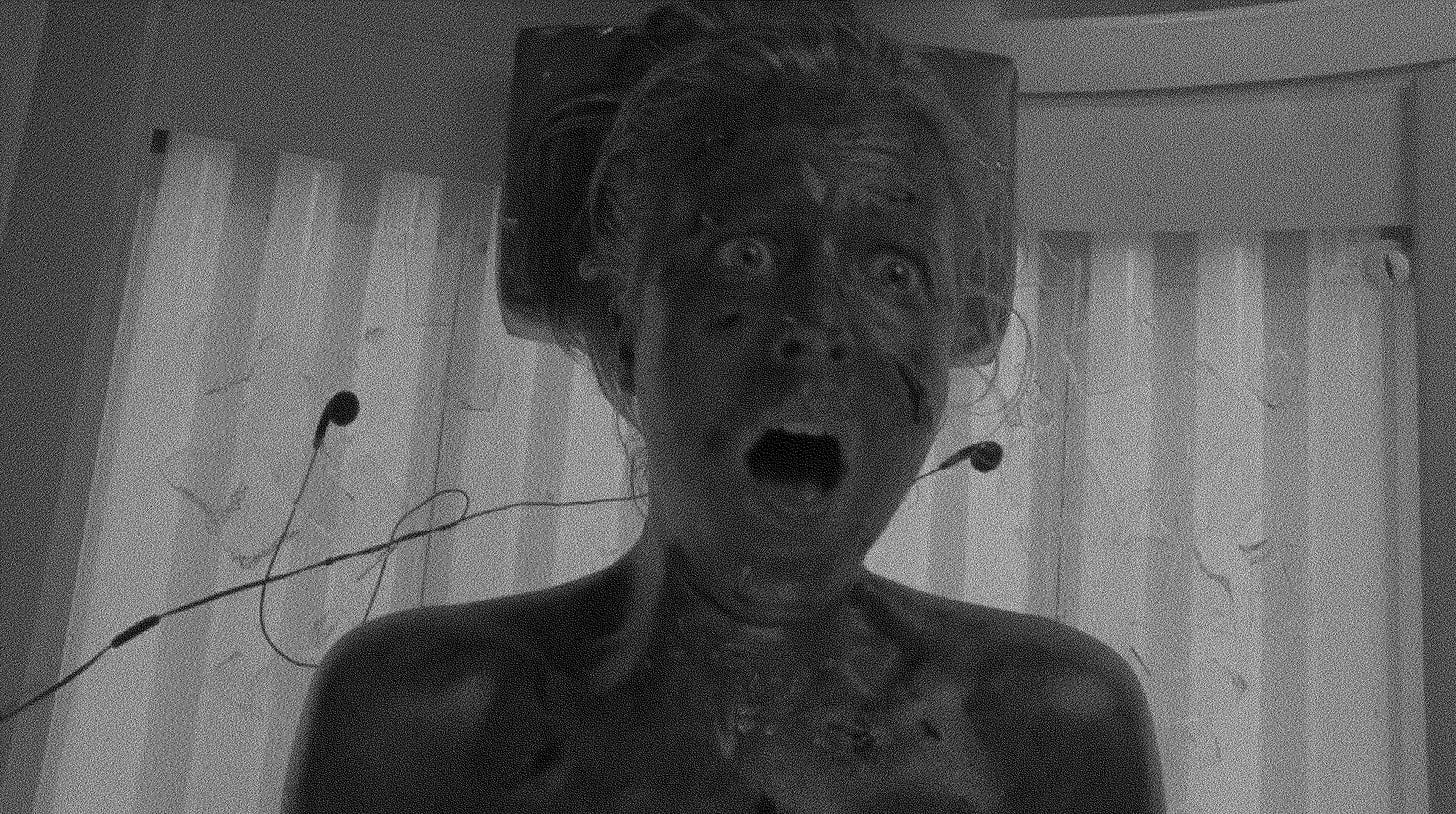What Final Destination can teach us about grief
A Rabbit's Foot columnist Haaniyah Awale Angus talks about the deeper messages behind horror's flashiest franchise
In a recent TikTok, pop megastar Charli xcx suggested that Final Destination is just “hot people getting killed.” But, as Final Destination Bloodlines graces cinemas, our columnist Haaniyah Awale Angus argues that the film franchise offers profound messages about the precarity of existence.
Final Destination has a formula, and it works.
You get a group of friends to go on a trip somewhere, maybe the bridge they’re driving over is rickety, or the traffic is weirdly packed, perhaps the lead character pricks their finger and a strange song comes on the radio, or maybe they’re at a Nascar race and the pillars of the building cracks in beat with the thudding crowd. Something in their gut knows this is all wrong, but they won’t realise it until it’s too late. And then all hell breaks loose, only for them to wake up, realising that the carnage and deaths they’ve witnessed were a premonition. But the question is, should they ignore it or try to change fate? When screenwriter James Reddick began writing Final Destination, he based it on a real-life case he had read about a woman who called her mother to warn that the plane she was about to take wasn’t safe. The plane eventually did crash, and her mother avoided certain death. But what if she wasn’t meant to?
Avoidance and fear have been a point of fascination for Final Destination for the past 25 years. When Reddick began rewriting the script as a feature with James Wong and Glen Morgan, Wong stated that their intention with the original movie was to “do for planes and air travel what Jaws did for sharks and swimming". This initial belief of sinking fear into the everyday rings throughout the series. There are, yes, graphic and absurd sequences, such as in Final Destination 3, when a character gets his brain spliced through in a fast food drive-through, but there are also moments that are entirely possible, like the dentist scene in Final Destination 2 where one of the surviving members almost dies from choking whilst unable to move from a chair and the laser eye surgery accident in Final Destination 5.
For most of my friends who grew up in the 2000s, Final Destination was known as a way to scare the living hell out of your cousins, friends, classmates, and especially your siblings. You’d put on one of the three movies that came out between 2000 and 2006 and traumatise the living hell out of kids, making them aware of fears they probably could’ve gone their entire life without realising existed. I spent most of my youth avoiding the films out of fear that they would come true (which is silly because I was a Scream fanatic), but there was just something about Final Destination that rang true to me as a child. Perhaps it was the realistic and yet so precise deaths, the stubborn nature of the characters who refuse to believe in Death’s curse or that I wanted to avoid intrusive thoughts whenever I saw a truck with a bunch of logs or sat in a dentists chair (both Final Destination 2 sequences)—either way, the franchise went under my radar until my early 20s.
Unlike myself, Suleekha, 25, was first exposed to the series as a young child, forever shaping her association with the words Final Destination. “The first time I watched it was when I was 8. My older sister convinced me it wasn’t a scary film. After watching the film, I was convinced death was coming for me too—it took me ages to get over my fear of the franchise, even though I’m usually a fan of horror films.”
For Safa, 24, the exposure to the series at a young age had the opposite effect. “My mum was my first introduction to horror, she was a major horror franchise junkie. My earliest memory would be 8/9 year 9-year-old me in a terrified daze watching the first plane crash scene in film one.”
The first time I saw Final Destination was in 2022. I decided to marathon the franchise in a single day, and with each watch of the five movies, I found myself becoming terrified of every form of transport (including escalators) known to mankind. I winced and groaned at the unnecessary violence, wondering what kind of sadist would find this enjoyable, let alone rewatchable. Cut to three years later, and apparently, that sadist was me, sick from a random spring cold, all alone in my North London flat. Instead of attending a music festival or seeing friends, I spent the bank holiday in my flat binge-watching Final Destination over the four-day weekend. Under my flu-induced haze, I thought, why not watch people die in mysterious and absurd ways? It was either that or rewatching Bojack Horseman for the umpteenth time, and I fear Final Destination may have been the more sane choice.
The most obvious change since my first watch is that I’ve experienced a run-in with death in a way I would’ve never predicted. My mum died in September of 2023, which has shaped a lot of the way I engage with media. Music not only sounds vastly different, but it also has shifted my enjoyment of specific genres, lyrics, and artists depending on where my grief is at a particular moment in time. The same can be applied to films. When I rewatched the Star Wars Prequels last fall, I found myself sobbing at Anakin’s emotional breakdown after he avenges his mother in Episode 2. Suddenly, I was much more attuned to a movie I’ve always hated and honestly mocked for being too soap opera-y.
Final Destination is not what I’d call an incredible horror series—it lacks the charm of the Scream franchise, the needed jump scares of Halloween or the unsettling nature of Texas Chainsaw Massacre. For most people, what sets the franchise apart is the fact that Final Destination confronts the inevitability of death in a way we rarely see in our day-to-day lives. There’s no slasher villain in a mask —it’s your own twisted fate. Rob Jones, 34, tells me that the tagline of ‘you can’t cheat death’ has stuck with him all these years since he first found Final Destination in a video shop in the 2000s. “Even with the comical deaths and overacting, absolutely no one is safe. That existential dread always lingers, like a shadow in the back of every frame. It’s one of the only franchises where not even the protagonist is safe. It is terrifying.”
"The most obvious change since my first watch is that I’ve experienced a run-in with death in a way I would’ve never predicted. My mum died in September of 2023, which has shaped a lot of the way I engage with media."
Haaniyah Awale Angus
I have to agree with Rob here, there’s an existential dread that lingers both on the film and off. During my rewatch, that dread felt more apparent than ever before, with Death having had a close relationship with me over the past two years. There’s a quietness to death that I wasn’t aware of before 2023. The passing of my mother was, yes, traumatic and quick, but it was also underhanded and excruciatingly slow. Those very contradictions are what have made my experience with death so confusing and, at times, destabilising to live with. In Final Destination, death exists as this all-knowing force with only one rule: don’t cheat. I believe that now, having watched this series’ six instalments, I feel a strange level of comfort from those stringent regulations. Not only will there be a time for us to pass on eventually, but there’s a sense of logic in the madness of life.
In a video posted on TikTok at the end of May, pop megastar Charli xcx touted that the core to Final Destination is “hot people getting killed, there’s no moral backbone to the story, they’re just hot, cursed and deserve to die”. Not to start an argument with Charli xcx stans, but I wholly disagree with the idea that Final Destination lacks a moral backbone. Much of horror relies on a cultural or moral fear that creates the monsters that haunt us. In Final Destination, that fear is death itself. It’s the unknown, the what-ifs, the will this be how I was remembered, dying on a plane or being hit by a car. So much of death exists as a legacy of sorts. What will those left behind be reckoning with, and how can I, at this very moment, accept that I have no control over what that legacy will be? As Safa tells me further, “There’s also a mundanity to all of it. Throughout the entire franchise, we will all see at least one of two situations that we have or will be in. Could be driving too close to a truck on the motorway, on a rollercoaster waiting for it to head off, or in a dentist's chair, it’s a very human franchise with these feelings of pain and paranoia that are present.”
In the latest instalment of the franchise, Final Destination: Bloodlines, the protagonist of the film, Stefani (played by Kaitlyn Santa Juana), grapples with those very questions as death tears apart her family, emotionally and literally. Her grandmother’s survival of her vision led to the isolation of Stefani’s mother and uncle, which in turn broke their families apart. There’s only so much avoidance you can do until it begins to eat you up inside and out, and in the case of the family in Bloodlines, their fate was inevitable; it was just about how they managed their acceptance of it all.
My acceptance of my mum’s passing has come in waves. Before she died, I spent nights in the hospital, reckoning with anticipatory grief and feeling like there was something wrong with me for bracing for the worst. Phone calls with friends who tried to quell my fears, or my aunts saying I wasn’t being hopeful enough, replayed in my mind, watching her in bed, barely being able to breathe. And when that worst eventually came, that acceptance and anticipation did not stop me from feeling the most unimaginable pain possible, but it allowed me to prepare for how I was going to manage it going forward without it debilitating me. I’m not saying that Final Destination exists as some grand meditation on grief, but in my case, it did work to undo some of the knots I was tying myself in to understand the why of it all. Sometimes there’s a clear answer, and sometimes, it’s just Death having its way.






